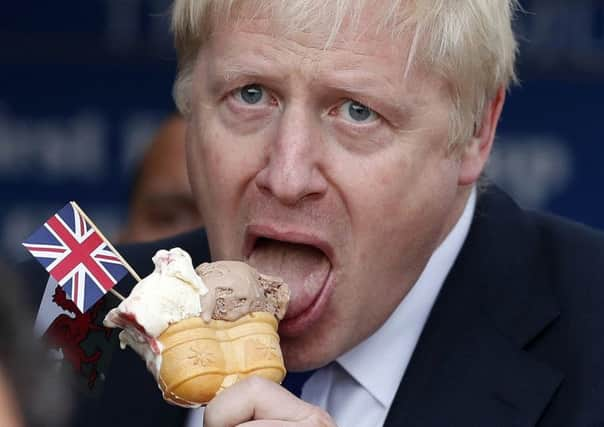How Boris Johnson could stymie independence with third indyref2 option – Ian Swanson


ALONG with the Christmas cards and election congratulations pouring into Downing Street, Boris Johnson knows he can also expect a special communication from Nicola Sturgeon, formally requesting a Section 30 order to allow a second independence referendum.
In turn, Ms Sturgeon – who believes she has a mandate for such a vote – is fully aware that the Prime Minister will say no, despite the fact the SNP now holds 48 out of the 59 Westminster seats in Scotland while the Conservatives, who campaigned almost exclusively on refusing Indyref2, lost seven of their 13 MPs.
Advertisement
Hide AdAdvertisement
Hide AdMr Johnson may have won the biggest Tory majority since Margaret Thatcher’s in 1987 but he is now Prime Minister of a divided UK. Traditional Labour voters in many parts of northern England felt strongly enough about Brexit that they were prepared to abandon the party, break the habit of lifetime and vote Tory to make it happen. In Scotland, the big vote for the SNP confirmed the country’s pro-Remain stance and carried an implicit warning of an alternative future.
Independence majority?
Although Ms Sturgeon has said she wants to hold Indyref2 next year, that timetable always looked tight and Mr Johnson’s refusal will mean the SNP can go into the 2021 Scottish Parliament elections complaining that the Tories are denying Scotland its right to choose. That would become the main focus of the election campaign and the Tories would present themselves as defenders of the Union, squeezing Labour once again.
But the chances are that Ms Sturgeon will lead her party to another victory.
If the Nationalists and Greens add up to a majority of pro-independence MSPs, it will be difficult for Westminster to continue to set its face against granting a Section 30.
Boris Johnson has said he will not allow a second independence referendum under any circumstances while he is Prime Minister, which sounds a pretty firm rejection. But we know he can change his mind without too much trouble – and seems to get away with it.
It is often said that no Tory premier would want to be the one to preside over the break-up of the United Kingdom – and in the aftermath of the election and Brexit chaos, Mr Johnson has Northern Ireland to worry about too.
More Holyrood powers or federal UK
Polls earlier this year showed that three-quarters of Tory Leave voters said that exiting the EU was more important than keeping Scotland in the UK. Slightly fewer said the same about Northern Ireland. The ties that bind seem no longer to be what they were.
However, there may be ways in which Mr Johnson will think he can still stymie independence – perhaps, for instance, by including a third option on the ballot paper, so that voters are not confronted with a choice only between the status quo or leaving the UK, but some kind of proposal for yet further increased powers for Holyrood, or creating a federal structure for the whole of the UK.
Advertisement
Hide AdAdvertisement
Hide AdThat would no doubt complicate and probably delay a new referendum. There would be debate about how the voting should work – would people be asked to rank their preferences in order or would it be some sort of run-off ballot?
The presence of a third option would muddy the waters as far as the SNP was concerned and probably help Mr Johnson by reducing the numbers voting for independence – but it doesn’t look like a long-term solution.